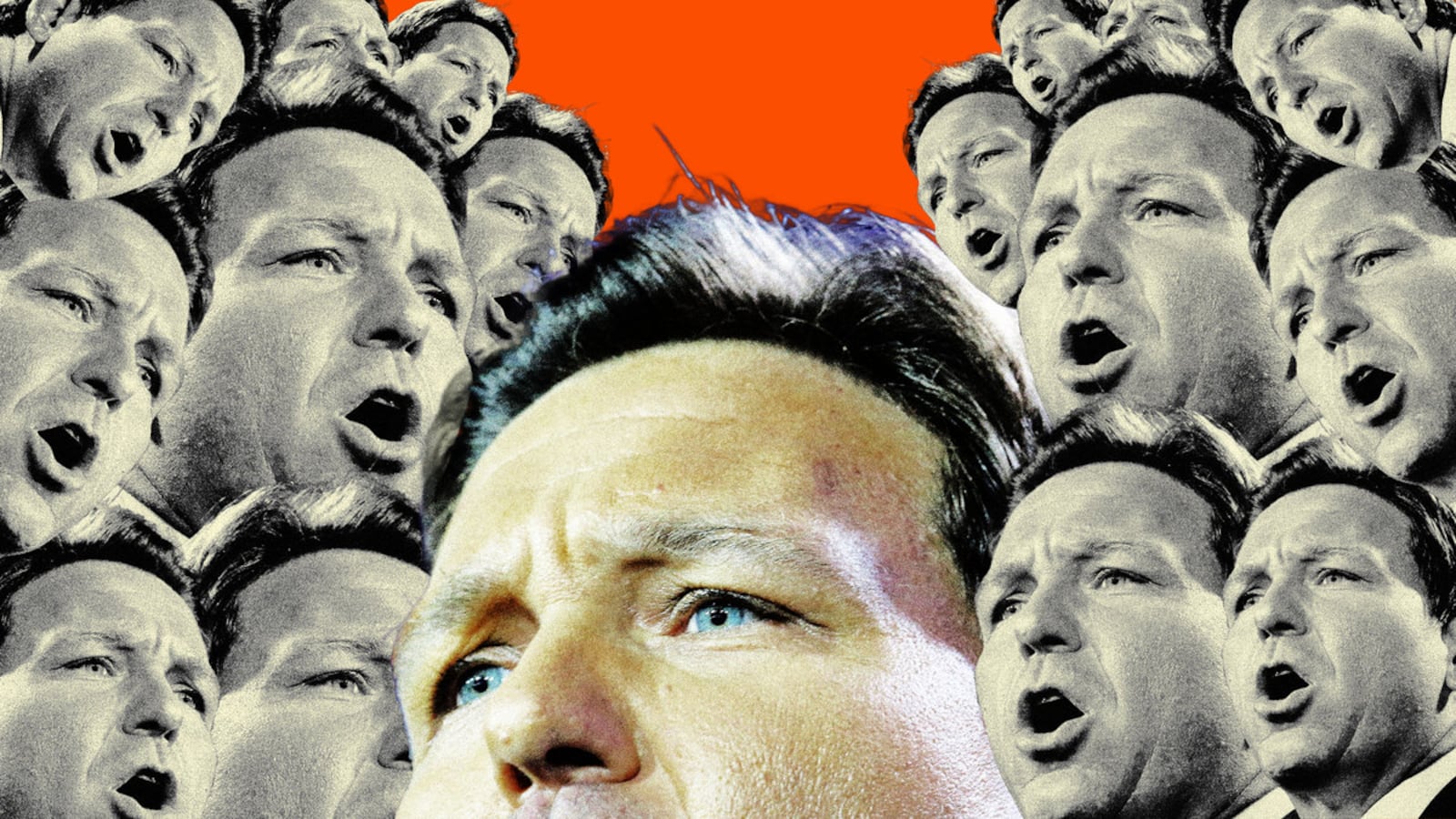Florida’s Gov. Ron DeSantis likes to play rough. He also likes to pander by sticking it to the pointy heads. In New College of Florida, the honors college of the State University System of Florida, he surely thought he had the perfect target for his latest campaign to own the news cycle for a few days.
He wasn’t wrong. Once he appointed six new members to the college’s board, and once they got busy making mischief, the news stories followed, both locally and nationally. The new board majority forced the college’s president out, replacing her with a DeSantis ally, and immediately began talking about curriculum overhaul and getting rid of what it considered coddling, woke policies affecting minorities and the LGBTQ community.
“It is our hope that New College of Florida will become Florida’s classical college… more along the lines of a Hillsdale of the South,” said James Uthmeier, DeSantis’ chief of staff, referring to the conservative Michigan college that adheres to Christian principles and a traditional curriculum, i.e., no CRT, no DEI, or any other left-leaning garbage.
And new board member Christopher Rufo, the right-wing apparatchik chiefly responsible for persuading the more mushwitted among us that Critical Race Theory was coming for your kindergartner, gleefully declared, “We’re going to be conducting a top-down restructuring” that will include “a new core curriculum from scratch.” He vowed that academically the school will “look very different in the next 120 days.”
Most of this was well covered in the news. But one thing was missing: any detailed explanation of what New College is actually about. And what would be lost if the college were to be changed.
I’m willing to cut some slack for the reporters who dodged this part of the story. It’s not easy explaining New College.
I should know. I went to school there.
I spent a lot of time trying to explain the college to my family, and I succeeded only insofar as they allowed me to attend and paid my tuition. I don’t think they ever lost their skepticism.
After all, it wasn’t easy understanding a school that’s all pass/fail, where the student is responsible for their course planning, where there are no required courses, where you were expected to spend some time studying abroad or at another college, where you had to write a senior thesis, and where you could graduate in three years (this was the old days, in the early ’70s, before the college became part of Florida’s university system).
It’s not for everyone. There’s no party scene, no Greek life, almost no organized sports (currently there’s a sailing club and a rowing team). You’re stuck on the outskirts of Sarasota on a campus lodged between the Ringling Art Museum and the circus museum (part of the campus is lodged in what was a Ringling brother mansion; other buildings were designed by I.M. Pei). When I was there, the fun thing to do on Saturday night was go across the road to the Sarasota airport and lie at the end of the runway and watch the planes take off (acid was optional).
But far more important, then and now, New College demands intense focus and self-motivation from its students. It requires that every semester you draft a contract with your academic adviser in which you plot out what you’ll be studying, which can involve courses, tutorials, and independent study. The responsibility is on you, the student, to make all this work. It is not for dilettantes. If you want a school that charts your academic path for you, you’re in the wrong place. And a lot of students decide they are in the wrong place. When I attended in the early ’70s, New College had one of the highest attrition rates in the country. After a year, I became one of those statistics. (If you make it through a whole year, you get to call yourself an alum, I’m happy to say.)
I left for several juvenile, shortsighted reasons that are too embarrassing to go into. But what I want to stress is that I never blamed New College. I let the college down, not the other way around. And while I have almost no institutional loyalty, I’ll make an exception for that place.
So when I read comments by the pseudo-academic thugs DeSantis had unleashed on the college to the effect that these little woke snowflakes need a taste of good old-fashioned academic discipline, I knew right away that these idiots didn’t have a clue. New College may be the red-hot center of wokeness, but it is also the Parris Island of undergrad studies. You can be sensitive, but you must be tough.
If Florida’s governor wants to include a conservative college in the state’s higher education system, that’s pretty much his right, the governing of higher education having been thoroughly politicized since the Jeb Bush administration. Remaking New College into that conservative campus, however, just seems performative, not to mention utterly ignorant of history: New College’s academic program is already the most traditional there is, based on the European model enshrined at Oxford University, which includes the eponymous New College on its campus.
Consider this: New College has produced 86 Fulbright scholars since it was founded. Last year it was ranked 76 among all colleges and universities and fifth among public schools of higher learning by U.S. News and World Report—fifth, and this is a school with fewer than 700 students. My high school was bigger than New College.
One thing I didn’t mention a lot around my family was the school’s financial frailty. Founded in 1960 as a private college, it struggled year after year, and somehow never shut down, although in the mid-’70s, the struggle just got to be too much and the school took a deal where it was absorbed into the University of South Florida. This partnership endured for 25 years, until the state overhauled the public university system and New College emerged as an independent unit with the State University System of Florida. The college bought itself some autonomy with that move, but the price of its independence would ultimately prove to be increased vulnerability to political assault. State support was the devil’s bargain the school made with the state system 50 years ago. And now the devil’s come to collect.
DeSantis and his minions seem hellbent on destroying an utterly unique college and for no good reason, or at least none that’s been articulated so far. These are the sorts of people who always talk as though the people in their crosshairs are getting away with something without ever saying exactly what that something is, except the usual vague nonsense about politicized gender studies courses. Which is your only option, really, when your target is one of the most admired academic institutions in the country.
I try to be philosophical. At least the state bailout bought the school a few more decades of life, so… And all good things, etc.
But what keeps dismantling my complacency is the story of Derek Black. In 2010, Black enrolled at the school, and after a semester or so, it got out that he was the devoted son of a major white nationalist; Black’s mother’s first husband was David Duke, who was Black’s godfather. Black was ostracized on campus. Other students felt threatened by his presence and some of them demanded he be expelled. The school refused. In fact, the administration offered no guidance at all, leaving some students confused and fearful. It could’ve ended badly for everyone. But then, over time, an amazing thing happened. Other students began engaging Black in conversation. At the invitation of a Jewish classmate, he wound up going to Shabbat dinners every Friday night and those dinners spawned more discussions, and over time Black began to change his mind, slowly but inexorably. Today he will be the first to tell you that none of his arguments in favor of white nationalism held up to scrutiny. But here’s the thing to note: He wasn’t shouted down. He was talked around, a participant in an intellectual community that put logic and kindness on an equal footing.
To the news of DeSantis’ plans for New College, Black, who is pursuing a doctorate in medieval history at the University of Chicago, had this to say: “My experience goes so against the idea that this is some sort of ideologically driven institution, because the administration never acted against me in any way. If anything, they were supporting my right to be there.”
In a country as divided as ours, there are very few places where a story like this could unfold. If I were among those responsible for the fate of New College, I would think long and hard before demolishing such an environment. But I’m not one of those people, and I’m not holding my breath.






